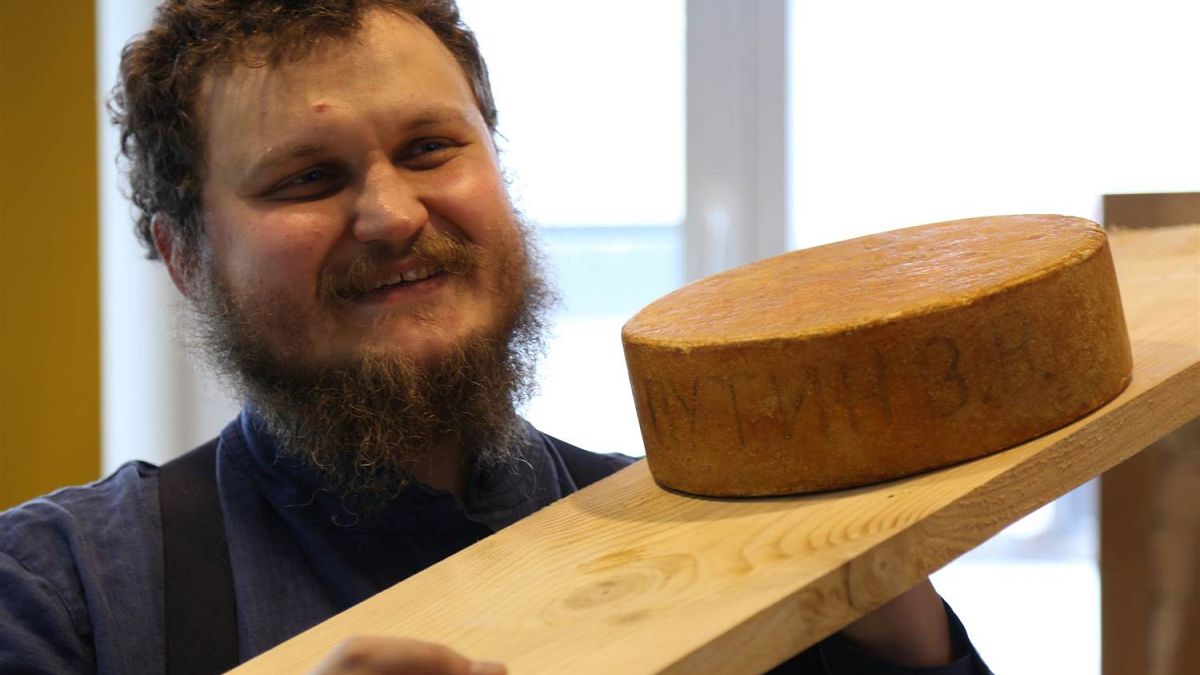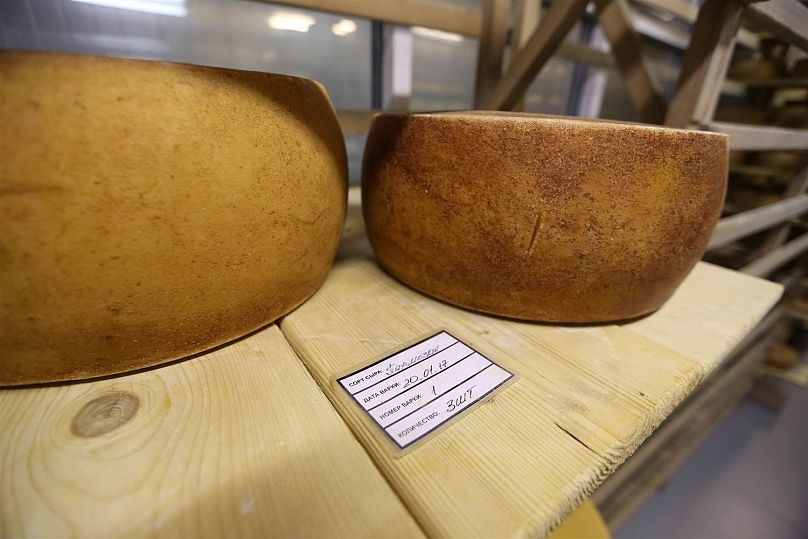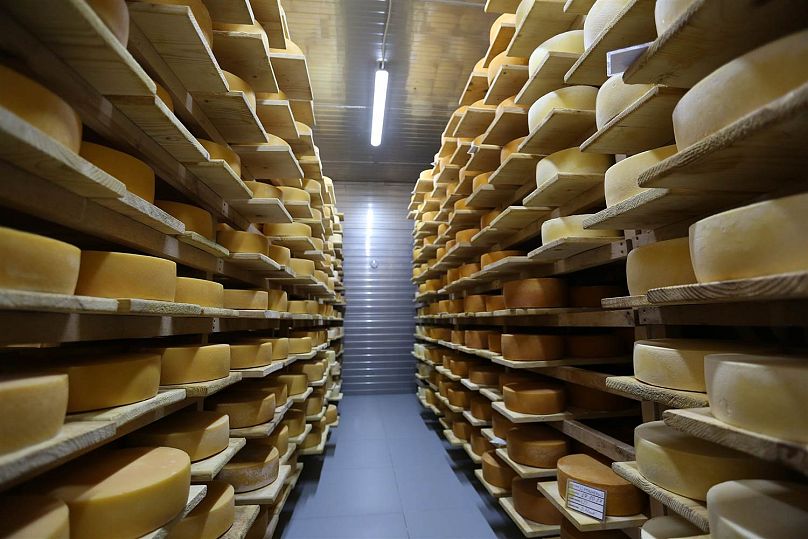“Is it now clear why I love Putin so much?” said Russian cheesemaker Oleg Sirota
By Carlo Angerer
DUBROVSKOYE, Russia — Oleg Sirota proudly holds up a wheel of Russian-made cheese with “Putin” etched into its rind.
“This is our prime block of cheese. This is the cheese for Vladimir Putin — exclusively for him,” Sirota said from his workshop in this village just outside Moscow.
The bearded cheesemaker wasn't always a supporter of the Russian president but plans to vote for him in the election scheduled for March 18.
He credits Putin for helping to make his dreams come true.
The president blocked the import of European dairy products into Russia in retaliation for sanctions that followed the 2014 annexation of Ukraine's Crimean Peninsula. That created a market for high-quality cheese in a country where French, Italian or Swiss products were ubiquitous.
The sanctions war triggered a crackdown on smuggled cheese, with 470 tons of it being seized in one raid in 2015. Other contraband products were steamrolled or incinerated by Russian authorities.
Spotting a sudden gap in the market and convinced that naturally aged Russian cheese would be a hit, Sirota stopped working as a programmer and invested $300,000 in his project.
“I sold my apartment, car and business, and borrowed money," said Sirota, who is in his 30s.
The gamble paid off. Sirota now owns a barn full of dairy cows just a few steps along a snow-covered road away from the production hall, but purchases additional milk because demand for his cheese is so high.
His dairy operates 24 hours a day, seven days a week, and employs 11 workers. He currently produces 800 pounds of cheese a day, and plans are in place to increase that to 4,000 pounds by the end of the year.
Sirota says his business is now making several thousand dollars per month in profits. His product is in such high demand that some customers are prepared to prepay more than $100 to reserve a wheel of cheese in advance.
“Is it now clear why I love Putin so much?” he says with a big smile.
Production manager Sergey Nedorezov learned cheesemaking in Germany and returned to Russia four years ago to join Sirota’s project.
"This is our gold," Nedorezov says as he watches another tub of curd being pressed into rings to form cheese.
According to Nedorezov, Russians knew how to make cheese good enough for export to Europe a century ago, but the art was lost during the turmoil of two world wars and the Soviet era. For decades, Russian factories churned out mass-produced, mostly soft cheeses, while artisanal cheeses were imported.
Now, Sirota is only months away from tasting his factory's first Russian-made Parmesan, which has been aging for over a year on storage racks.
Parmesan is a favorite of Russian consumers, but nearly impossible to buy with sanctions in place and difficult to produce due the large amount of high-quality milk needed. Sirota hopes to taste it in about six months.
All Sirota needs is the Russian government to keep the counter-sanctions in place.
“I am so grateful to him, I love him so much now, I will cast my vote for him,” Sirota said, referring to Putin.
“There is a shield of sanctions and counter-sanctions above our country and we are developing and growing under this shield,” he added.
Many Russian farmers are likely to support Putin at the ballot box, according to Andrei Danilenko, chairman of Souzmoloko, the national dairy producers union.
“The farmers in the last 10 years have seen the results of increasing government support into the agricultural sector, and Putin has played a personal, significant role,” he said. “The farmers today identify him as the person who’s significantly improved their quality of life and their opportunities, so the agricultural sector is definitely a success story for President Putin.”
The California-born Danilenko moved to Russia, the country of his parents, in the early 1990s after the collapse of the Soviet Union and started as a small farmer. In addition to representing dairy producers, he is also part-owner of a large agricultural company.
“The sanctions, in essence, stimulated us to take a much closer look at our own domestic production and most importantly take a careful look at efficiency,” he said, adding that agriculture and food production are among the country's fastest-growing sectors. Russia was once the world’s largest importer of grain but is now a record exporter.
Sirota, the cheesemaker, hopes to one day export his products as well.
“I am proud to be a Russian farmer,” he said. “This is not about money. I did it because I had a dream of Russian cheese, of Russian Parmesan, that we will be making this cheese — and we are actually making it now.”




